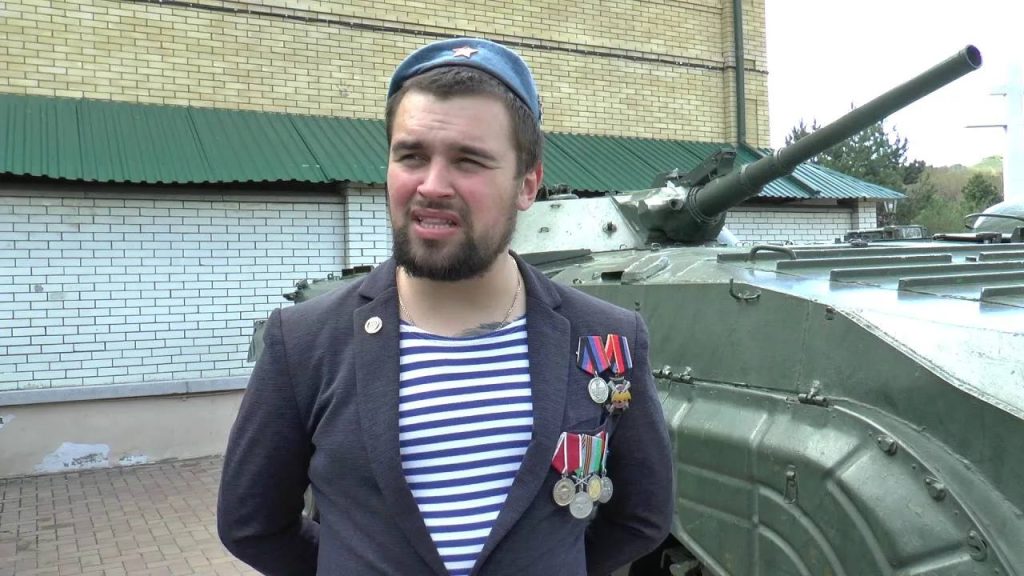Yegor Guzenko, a pro-war blogger who has been openly critical of the Kremlin, was placed in custody by a Russian court on charges of “using violence” against a police officer. Guzenko is known for his popular Telegram channel Trinadtsaty (Thirteenth), which has over 300,000 subscribers and focuses on Russia’s conflict with Ukraine. He has previously been involved in Russia’s war against Ukraine in Donetsk Oblast and the Syrian civil war. In September, Guzenko spoke out against Russian authorities and criticized the arrest of ex-warlord Igor Girkin, also known as “Strelkov,” who was detained in July 2023 for extremism charges.
The arrest of Guzenko reportedly occurred in the town of Novopavlovsk in Stavropol Krai, with conflicting reports emerging about the circumstances. While some channels claim he was initially detained on suspicion of drug use, others state that he resisted police after being asked to remove a mask at a concert. This is not the first time Guzenko has been in trouble with the law, as he was previously prosecuted on hooliganism charges for allegedly using pepper spray on an individual’s face in 2022. These incidents suggest a pattern of behavior that has led to legal trouble for the blogger.
In a separate development, it has been reported that infamous Russian arms dealer Viktor Bout is preparing a deal with Yemen’s Houthis, according to the Wall Street Journal. Bout gained notoriety in 2005 when a movie titled “Lord of War” depicted his life of selling weapons to clients in the Middle East, South America, and Africa. He was arrested in 2008 and imprisoned in the U.S. for his illegal arms dealing activities. The potential deal with the Houthis raises concerns about the conflict in Yemen and the role of arms dealers in fueling violence in the region.
The arrest of Guzenko and the reported activities of Viktor Bout highlight the complex and often controversial nature of Russia’s involvement in conflicts around the world. Guzenko’s detainment on charges of violence against a police officer comes at a time when tensions within Russian society are high, with dissenting voices like his facing increasing scrutiny and punishment. Meanwhile, Bout’s alleged dealings with the Houthis underscore the global reach of arms dealers and their role in perpetuating violence and instability in conflict zones.
These incidents also raise questions about the state of freedom of expression and the rule of law in Russia, where individuals who criticize the government or engage in controversial activities risk facing legal repercussions. The cases of Guzenko and Bout bring to light the challenges faced by those who operate outside the boundaries of official narratives or engage in activities that go against the interests of the state. It remains to be seen how these developments will impact the ongoing conflicts in Ukraine, Syria, and Yemen, and what implications they may have for Russia’s international relations and domestic stability.
Overall, the stories of Yegor Guzenko and Viktor Bout serve as reminders of the complexities and controversies surrounding Russia’s involvement in global conflicts and the individuals who play roles in these conflicts. From bloggers facing charges for their criticism of the government to arms dealers implicated in arming warring factions, these cases shed light on the multifaceted nature of modern warfare and the various actors involved. As these events unfold, it will be important to closely monitor the implications for international relations, human rights, and the rule of law both in Russia and on the global stage.


